The Culture of Smoking by Brigada
Croatian design studio Brigada was inspired by cigarettes and smoke rings to create glowing cylindrical rooms for an exhibition about the culture of smoking (+ movie).
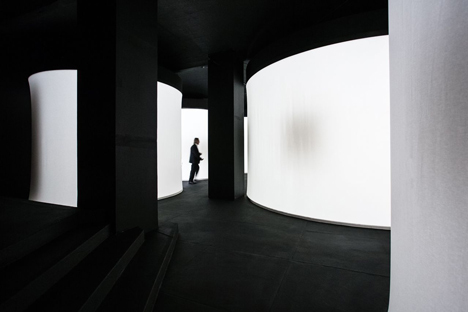
The Culture of Smoking: From Taboo to Taboo took place at the Gliptoteka gallery in Zagreb and focussed on the role smoking has played in Croatian art, photography, graphic design and film over the last 150 years.
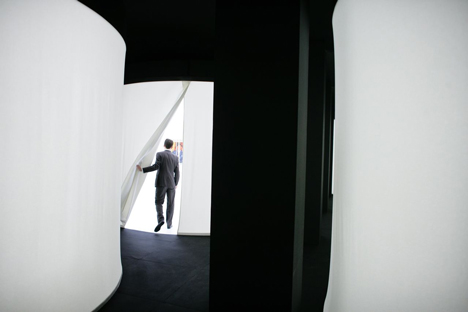
Brigada was interested in the idea of smoking as a social taboo. Although a ban on smoking in enclosed public places in Croatia was lifted in 2009, there are still strict regulations on the promotion of smoking in the country.
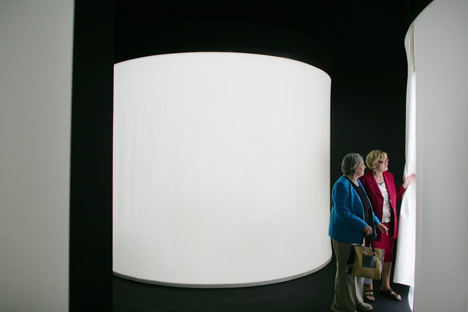
In response, the designers wanted to hide the paintings, photographs and artefacts on show. They created a series of glowing fabric cylinders, which they describe as "reminiscent of smoke circles or oversized cigarettes".
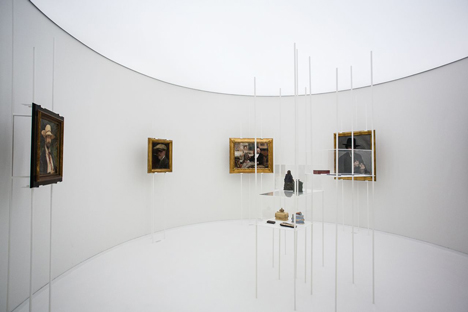
The interior of each space was lit from above to avoid any shadows, plus artworks and prints were hung from scaffolding structures, as they couldn't be mounted onto the walls.
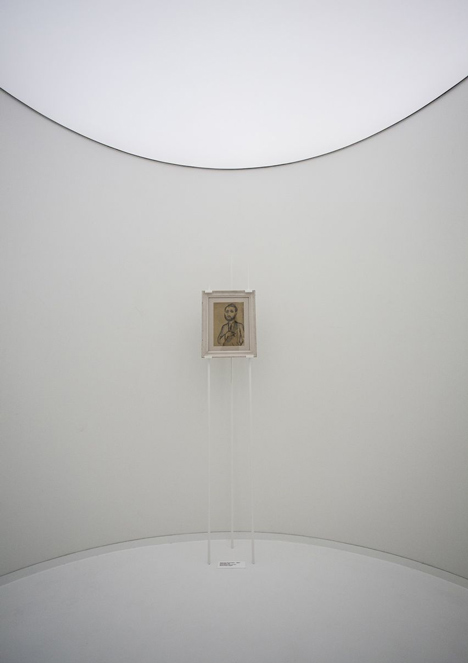
The walls of the surrounding gallery were painted black to contrast with the brightness of the white fabric. Curtains hung over the entrance to every room.
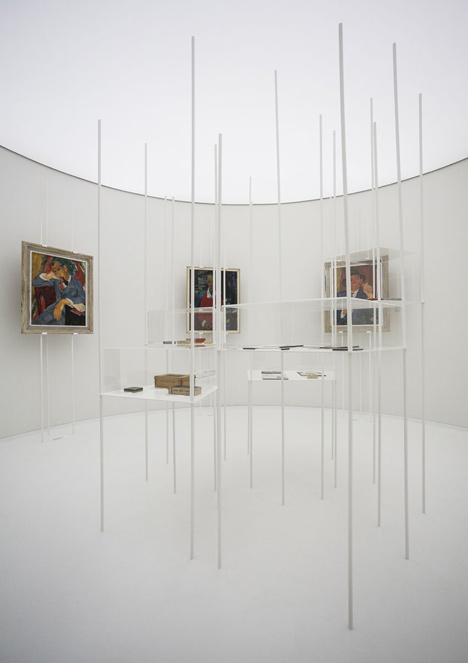
Past projects by Brigada include an installation for a book that can only be identified in the dark.
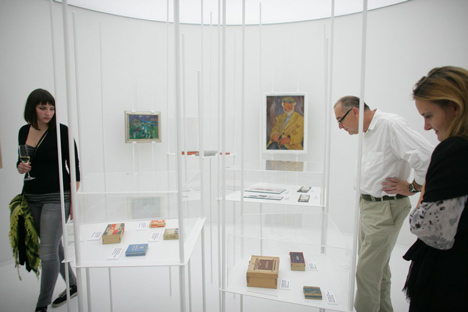
See more exhibition design on Dezeen, including an architecture exhibition with looping walls and a performance exhibition filled with concertinaed ribbons.
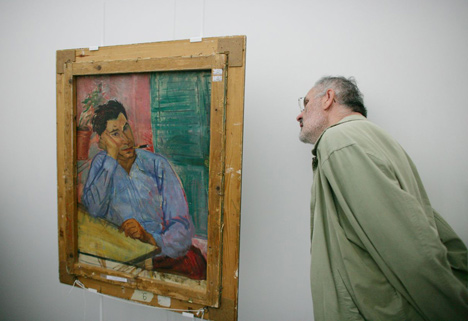
Photography is by Domagoj Kunić and Domagoj Blažević. The movie is by Red Studio.
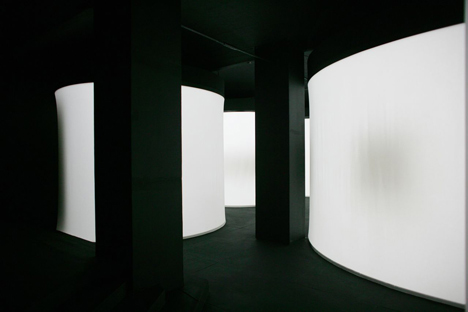
Here's some extra information from the designers:
The Culture of Smoking: From Taboo to Taboo / exhibition design
Brief
Glypthoteque HAZU, an art institution in Zagreb, Croatia, wanted to explore the link between smoking, art, and the concept of taboo – a hazy relationship made even more complex by Croatia's strict laws on the promotion of tobacco. The resulting exhibition, The Culture of Smoking: From Taboo to Taboo, focuses on the role smoking has played in artistic and popular culture by bringing together paintings, posters, photographs, films and ephemera created over the last 150 years.
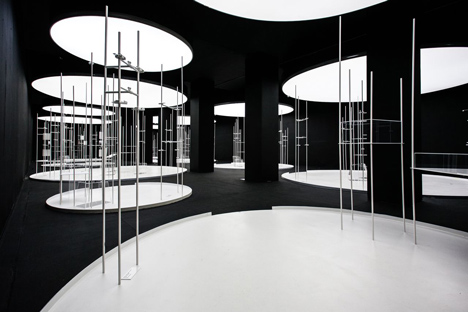
Idea
Taking inspiration from the phenomenon of smoke, the main goal of the agency Brigada was to recreate its very essence in the gallery space itself by completely altering a well-known exhibition space. Playing with the idea of taboo, their intention was to design an anti-exhibition – a display that hides the exhibits even from the museum itself.
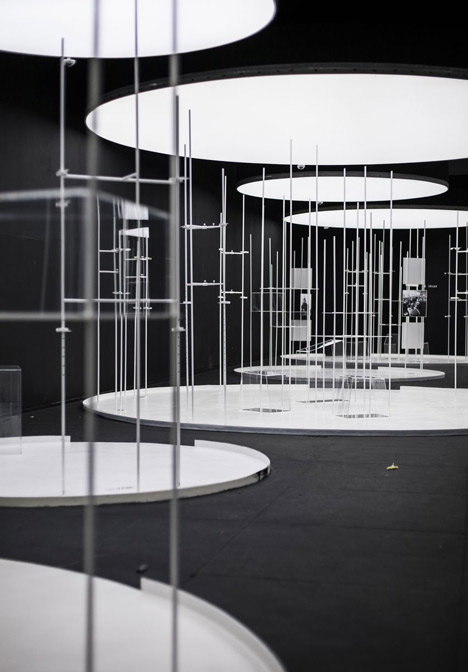
Execution
They decided to create a 'nonspace' that plays with perception on different levels. By transforming and concealing all the existing elements of the gallery and painting the entire area black, the conventional exhibition space disappeared. Inside of it they built a completely new space, one that has no walls or ceilings, only cylindrical display rooms reminiscent of smoke circles or oversized cigarettes.
Softly illuminated from within, their enticing glow invites visitors to come take a closer look. But only after stepping into the space are the objects of taboo revealed. With no walls to hang paintings on, they designed modern easels that hint at the moment of artistic creation – usually in a smoke-filled studio. A special system of freestanding display cases and slender cylindrical rods exhibits smaller objects.
Ceiling lights illuminate the exhibits without creating any shadows to provide a contrast between the outer (black) and inner (white) space without disrupting the ephemeral feeling of the whole exhibition.
The display rooms create an atmosphere charged with mystery, discovery, and sustained interest. Visitors excitedly move back and forth between display spaces, revisit their favorite rooms, and ultimately create their own path through the exhibition.
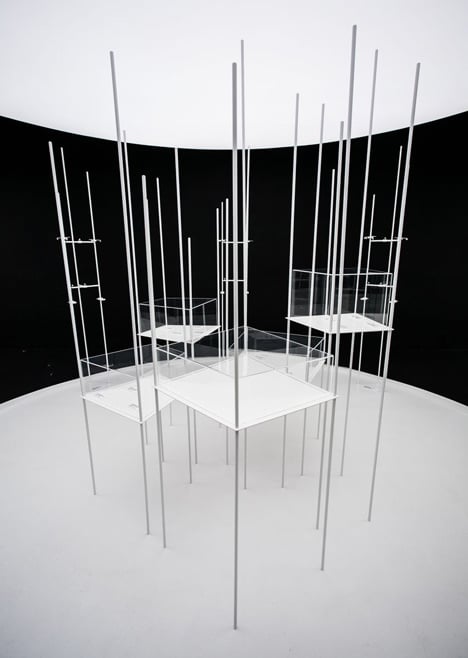
Design team:
Brigada - Damjan Geber (Creative Director), David Kabalin (Architect, Project Manager), Simon Morasi Piperčić (Product Designer), Marina Brletić (Architect), Kristina Jeren (Architect), Lorenzo Cetina (Assistant)
Bruketa&Žinić OM - Davor Bruketa, Nikola Žinić (Creative Directors), Zrinka Jugec (Account Director), Ana Baletić (Art Director), Branka Lovrić (Designer)
Curators: Igor Zidić, Feđa Vukić